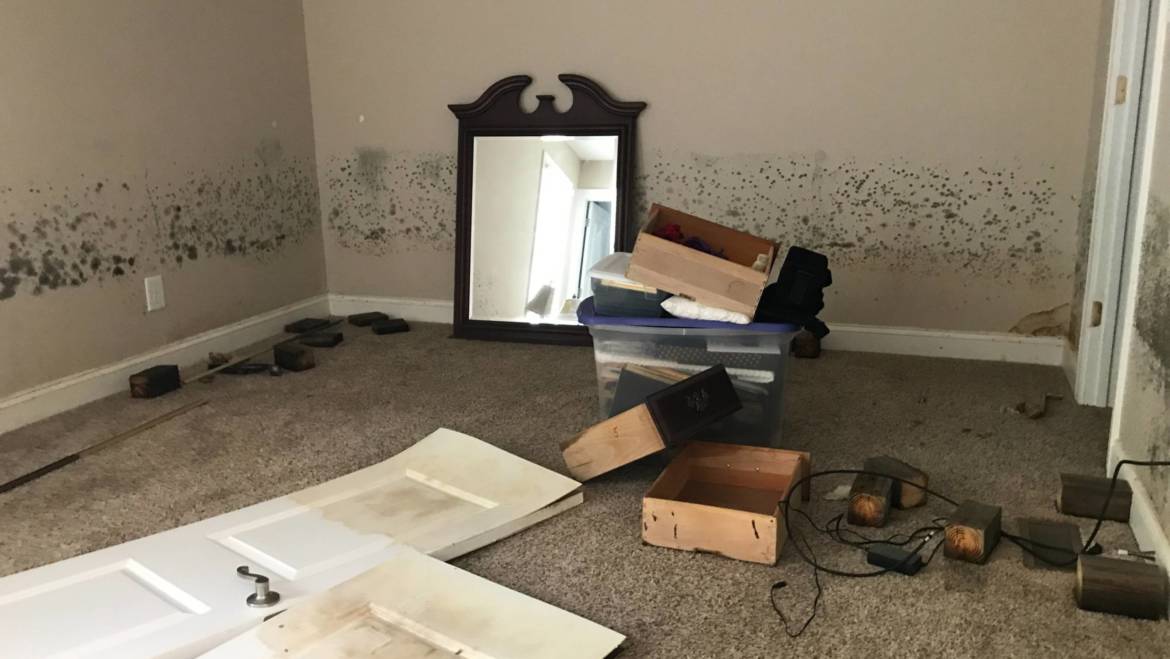From basement floods to leaky roofs to malfunctioning sump pumps, no homeowner wants to deal with a wet basement. And for good reason — the American Society of Home Inspectors estimates 60 percent of U.S. homes have wet basements. And not only do they look, smell, and feel unpleasant, they also pose a risk to your home’s value. Here are some ways to prevent flood damage:
- Put your snow shovel to work. Most basements get wet when rainwater or melted snow runs toward houses from roofs, yards, and driveways. So, it’s a good idea to move snow away from the foundation of your home. Push accumulated precipitation 3 to 5 feet away from the structure to help reduce the risk of a wet basement due to snow melt.
- Consider a sump pump. An upright (pedestal) or submersible sump pump that’s been properly maintained can be your home’s first line of defense. Inspect and clean any existing pump and test it by pouring water into the pit. The discharge hose should carry the water several feet away from the house to a well-drained area (and make sure to not let the hose freeze!).
- Check and maintain your downspouts and gutters. A downspout’s job is to carry accumulated water several feet away to a well-drained area. Start by cleaning your gutters and repairing holes in them. Make sure they are not loose from the house and that they slope toward downspouts to allow water to fall directly from the roof to the ground. Reconnect any disconnected downspouts, and redirect spouts and gutters as needed.
- Watch your window wells. Window wells can collect water, causing leaks into the basement. The perimeter of windows should be tightly caulked and sealed to prevent water entry. All entry points need to be inspected, and don’t forget to check for cracks in the wall or floor where water could seep in.
- Examine the roof. It’s worth the time to examine the condition of your roof before spring rains start. Look for damaged or missing shingles or tiles, and for cracks in the sealant around flashing, roof-mounted hardware, skylights, and vents.
- Safeguard against CO poisoning. If your venting system has been damaged by hail or blocked by debris, you could risk carbon monoxide (CO) poisoning. Have your roof inspected every year, and if it needs to be repaired, find an experienced contractor who understands venting systems.
- Foster the foundation. To prevent basement and garage flooding, build up the soil around your home’s foundation to divert water, first cleaning up old mulch, leaves, and ground covers. The Washington Post reports that the earth around your house should slope at least 1 inch per foot, going away from your house for about 6 to 8 feet. The grading should consist of fill soil with a clay content of 20 to 30 percent. Don’t use sandy soil or soil containing a lot of organic matter because it doesn’t shed water adequately.
- Check your insulation. If you suspect that water has gotten into the insulation, or you’re having condensation issues in your basement, you may want to consider adding or replacing the current insulation. You may also want to paint your walls with waterproof paint or sealer.
- Install water-leak detectors. Knowing when a leak has started is half the battle. Many water-leak sensors even connect to your home’s Wi-Fi and include smart water shut-off valves.
- Use your yard as a sponge. Just getting water away from your house isn’t enough — the true goal is getting the water to soak into the ground. The American Society of Home Inspectors recommends planting a rain garden in your yard to help soak up the extra water. A rain garden collects water from hard surfaces such as rooftops, sidewalks, driveways, and patios. The shallow decline of the garden holds the water, so it can slowly soak back into the ground as the plants, mulch, and soil naturally remove pollutants from the runoff.
- Try not to store valuables or sentimental items such as photographs and important documents in the basement. If you absolutely must put your valuables downstairs, invest in some plastic shelving units and airtight plastic totes. This can help increase the longevity of those items from other factors besides just water and mold.
Before something happens to your home — whether it’s fire, flood, or just weather-related headaches — make sure you’re covered. Talk to us at Pitts Insurance Agency about the best coverage for your home.
This blog is brought to you by our sponsor, Grinnell Mutual.

